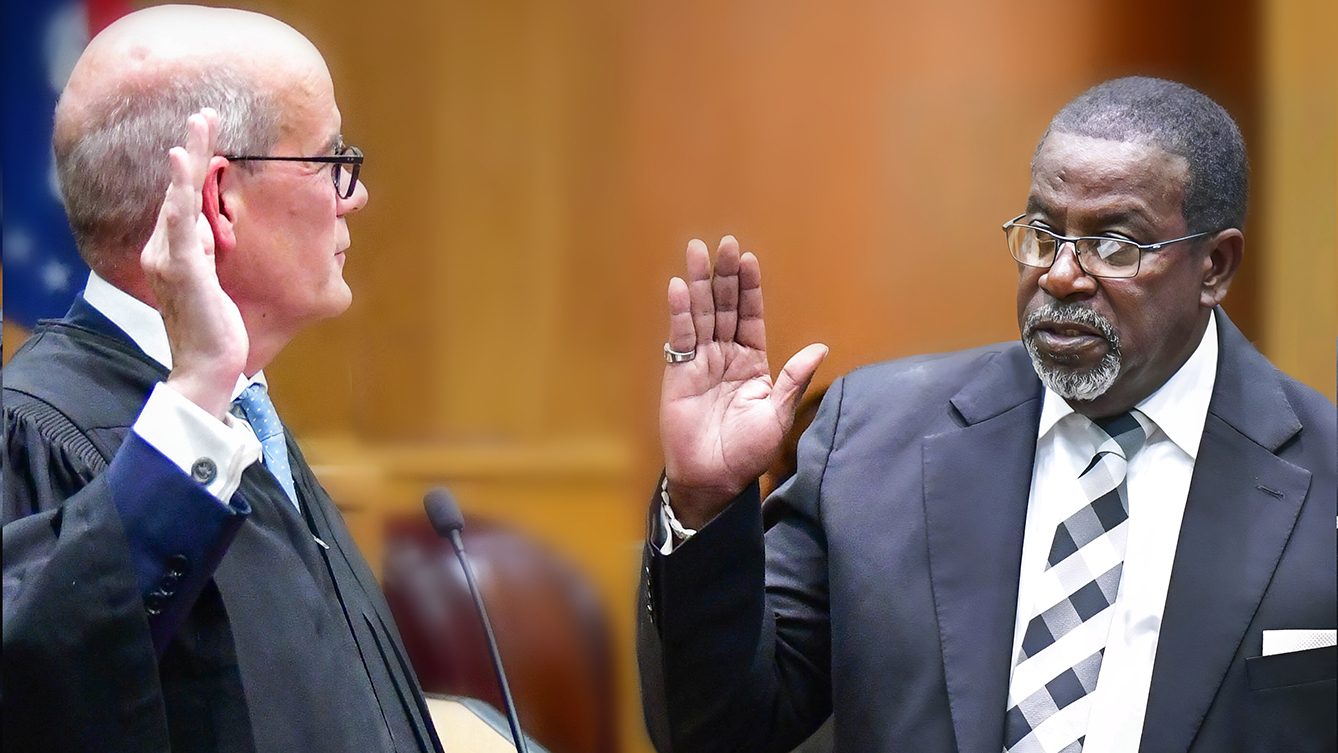Politics infuse Mississippi governor’s budget plan
Published 9:00 am Wednesday, November 25, 2020
Mississippi Gov. Tate Reeves is using his state budget proposal to appeal to a conservative voting base. He’s proposing a new $3 million “Patriotic Education Fund” because he says young people are being filled with ideas that undermine the belief in American greatness.
The Republican governor released his recommendations last week for a $6 billion budget for the fiscal year that begins July 1.
“Across the country, young children have suffered from indoctrination in far-left socialist teachings that emphasize America’s shortcomings over the exceptional achievements of this country,” the Reeves budget document says. “Revisionist history has aimed to tear down American institutions, and it is poisoning a generation.”
Reeves has been a staunch supporter of President Donald Trump. On Nov. 2, the Republican president created a “1776 Commission” to promote Trump’s vision of patriotic education. Trump had criticized The New York Times’ “1619 Project,” which examined the long-term consequences of slavery in the United States.
Reeves unveiled his budget Nov. 16 on a Facebook live session. He said young people need to be taught “the good and the bad” about “what makes America the greatest place on earth, what makes America — these United States of America — the greatest country in the history of mankind.”
Reeves did not offer specifics about what would be taught as patriotic. For example, could it include lessons about people who challenged Mississippi’s deeply segregated society in the 1960s? Were they patriotic? Mississippi’s governor at the time, Democrat Ross Barnett, did not think so.
“We must not and we cannot allow the liberals, the left-wing elements of this nation, which are present in both major political parties (to) infiltrate our ranks through our schools and other media and brainwash our youth,” Barnett said in 1962.
A clip of Barnett can be seen at about the 9-minute mark in “The Toughest Job,” a movie about Democrat William Winter, who was elected Mississippi governor in 1979.
History professor Robert Luckett told The Associated Press on Thursday that Reeves, in proposing a “Patriotic Education Fund” is using “dog whistle” phrases to appeal to conservatives by raising the specter of socialism spreading in the U.S.
“Frankly, it strikes me as just kind of a political ploy and a political statement in the current climate we’re in, especially in these waning days of the Trump administration,” said Luckett, director of the Margaret Walker Center at Jackson State University.
Luckett said “there’s something very anti-intellectual about and something dangerous” about the idea that historians should stop evaluating information.
There’s no guarantee, of course, that the proposed “Patriotic Education Fund” will survive.
Governors can make spending suggestions, but budget-writing is a legislative responsibility. Mississippi legislators have a long tradition of ignoring governors’ ideas. Reeves knows this because he did it during eight years as lieutenant governor, when he presided over the Senate and alternated years, with the House speaker, as chairman of the 14-member Joint Legislative Budget Committee.
On Dec. 7, the Budget Committee will release its own set of spending recommendations for the year that begins July 1. More budget discussions will happen after the legislative session starts in January. All 122 members of the House and all 52 members of the Senate are supposed to vote on final spending plans by early April.
In Reeves’ budget proposal, he largely ignores his own 2019 campaign promise to increase teacher pay all four years during this term as governor. He recommends bonuses for teachers in high-performing schools or in schools that improve in academic ratings.
He also proposes reducing spending for schools that don’t offer in-person instruction during the coronavirus pandemic. The next budget year is months away, but Reeves made his recommendations as Mississippi and other states are seeing a surge in new virus cases.
Emily Wagster Pettus has covered Mississippi government and politics since 1994. Follow her on Twitter: twitter.com/EWagsterPettus.





